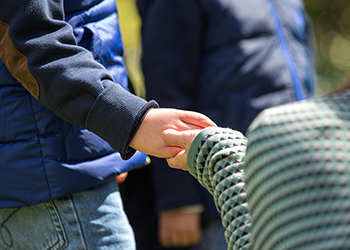European partnership for special needs publics

Taking into consideration the development and implementation of innovative practices for publics with special education needs, the education services of seven European institutions – Fundación Siglo para el Turismo y las Artes en Castilla y León (Spain); Museene i Sør-Trøndelag AS (Norway); Istituto per i beni artistici culturali e natural della Regione Emilia Romagna (Italy); Eesti Meremuuseum (Estonia); Stiftung Berliner Mauer – Gedenkstätte Berliner Mauer (Germany); Erinnerungsstätte Notaufnahmelager Marienfelde (Germany) and the Calouste Gulbenkian Foundation –, which already engages in program development for such publics, are to undertake a set of joint activities focused on cooperation and learning from peers through exchanges of experiences.
The three-year project is to receive support under the auspices of the Erasmus+ European Program, within the framework of cooperation for innovation and the exchange of best practices and strategic transnational partnerships, correspondingly fostering the sharing of innovative experiences among different types of organisations involved in education, training and youth issues as well as other relevant fields.
From the perspective of the TANDEM project, special education needs represented an opportunity to work in a creative fashion in support of democratic values that should act to sustain the diversity of European society. The project shall enable an understanding of the forms of inclusion in education and aid in developing methodologies to creatively deal with diverse student groups, with and without such special needs, through the development of programs, interactive methods and the scope for deploying new technologies.
The Calouste Gulbenkian Foundation has a vast experience of working with special needs publics and for many years counting upon a transdisciplinary team to engage in work in this area. The know-how acquired through the association of artistic practices and digital tools, which enable communications without recourse to words and very effectively working dimensions such as attention, concentration, motor coordination, relaxation and the ongoing relationships between participants (via an interactive table, an interactive sound ball or a sound box, for example), constitute one f the main contribution that this project seeks to make on a European scale.
This thus seeks to render museums and education more accessible to publics with differing types of needs (visual disabilities, loss of hearing, mental issues, among others), the TANDEM project is also to pay particular attention to the involvement of disadvantaged children and young persons, less qualified visitors, adult students, the unemployed and migrants to participate in cultural activities.
